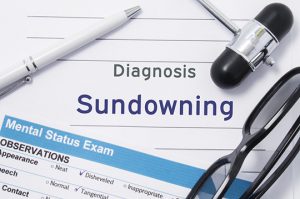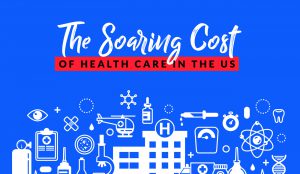
You Are More Than “Just a Nurse”
Have you ever heard this: “Oh, so you’re just a nurse. Why didn’t you become a doctor?” Or: “Nurses only do what the doctors tell them.” Or “Nurses are really doctor assistants.” Maybe you have even said it about yourself: “I’m just a nurse.”
It’s time for every nurse to stop being humble and self-deprecating. Remember that every year since it began, the Gallup Poll finds that the nursing profession is rated the highest in honesty and ethical standards. (Exception: In 2001, following 9/11, First Responders ranked highest) In the 2020 poll, 89% of Americans said that nurses were the most trustworthy; physicians earned a 77% rating and pharmacists scored 71%.
Firefighters don’t refer to themselves as “just a fireman.” Attorneys don’t say, “I’m just a lawyer.” Nurses must compete to get into nursing school; they have to succeed in one of the most difficult college majors; and then pass the challenging NCLEX to earn a license. For the rest of their lives, they will need to protect their nursing license. There is absolutely no reason to ever say “just a nurse.”
What would happen without nurses?
Health care can’t function without nurses. In every area of medicine, you’ll find a nurse working to improve lives, care for the sick, and protect the vulnerable. What would the world be like without nurses?
- More infections and complications from surgery and diseases
- Higher death rate in patients who are acutely ill
- Lack of critical thinking during patient care
- More medication and procedure errors
- Poor patient/family education
- No one to intercede or advocate for patients
- Absence of touch and compassion
Nurses were the frontline during the COVID-19 pandemic. Faced with inadequate PPE, endless shifts, grieving families, and constant uncertainty, nurses showed up to do what they do: provide outstanding patient care. Because of their close contact to infected patients, nurses were at a higher risk of getting COVID-19 than other members of the health care team.
The role of nurses during the pandemic became prominent in the news. Suddenly the world could actually see the responsibilities and actions that are part of being a professional nurse.
Everyone could understand what a 12-hour shift in full PPE was like, from providing constant bedside care to helping a patient say good-bye to their family via a tablet. The entire health care system struggled during the pandemic, but nurses may have felt it the most.
Doctors know you’re important
Read this letter of acknowledgement and gratitude from a physician to nurses:
Thanks to all the nurses who take care of my patients and every other patient. I may be a doctor, but you are the ones who deliver the care. You give the medications and hang the IV fluids. You wash the patients and turn them. You check their vitals and listen for bowel sounds. You walk with them. You talk with them. You fulfill their needs. And you provide comfort to them and their families.
You have seemingly limitless patience and endurance. You have heightened senses, for when you tell me you smell C. diff, I believe you. Your nose has probably smelled enough stool for 37 lifetimes.
And let’s not forget about all the charting. And the policies. And the limitations. And the regulations. And the frustration at not being able to do what you want for the patient, what is right for the patient.
The work can be vastly rewarding, but it can break you. The sickness, the death, the stress, the mistakes, the berating, and the insult when someone refers to you as “just a nurse.”
No, you’re not “just a nurse,” because not everyone can be a nurse. I know I can’t.
Miss America’s Speech
In 2016, Kelley Johnson was second runner-up in the Miss America competition. For the talent portion, she did something never done before: She walked onto the stage wearing scrubs, with a stethoscope around her neck.
While other contestants wore evening gowns and played the piano, sang opera, or danced ballet, Kelley spoke about being “just a nurse.” (You can see her monologue here.) She spoke emotionally of caring for a patient with Alzheimer’s and how he impacted her life…just as she had impacted his. “Nurse Kelley, if you say I’m not just a patient, then you can’t say you’re just a nurse.”
The audience cheered after she finished. But the following day, daytime television show hosts mocked Kelley and her choice of wearing scrubs. One of them wondered why she had worn “a doctor’s stethoscope.” The comments caused an enormous backlash, and some sponsors pulled their ads in response. Clearly, Kelley had made her point.
Just A Nurse
I’m ‘just a nurse.’
I just make the difference between life and death.
I’m ‘just a nurse.’
I just have the educated eyes that prevent medical errors, injuries and other catastrophes.
I’m ‘just a nurse.’
I just make the difference between healing, coping, and despair.
I’m ‘just a nurse.’
I just make the difference between pain and comfort.
I’m ‘just a nurse.’
I’m just a nurse researcher who helps nurses and doctors give better, safer and more effective care.
I’m ‘just a nurse.’
I’m just a professor of nursing who educates future generations of nurses.
I’m ‘just a nurse.’
I just work in a major teaching hospital managing and monitoring patients who are involved in cutting edge experimental medical research.
I’m ‘just a nurse.’
I just educate patients and families about how to maintain their health.
I’m ‘just a nurse.’
I’m just a geriatric nurse practitioner. I make the difference between staying in one’s own home and going to a nursing home.
I’m ‘just a nurse.’
I just make the difference between dying in agony and dying in comfort and with dignity.
I’m ‘just a nurse.’
I’m just the real bottom-line in health care.
Don’t you want to be ‘just a nurse’ too?
(Source: http://suzannecgordon.com/just-a-nurse-poster-bookmark/)
How can you help change the perception?
- 1
Never refer to yourself as “just a nurse.”
- 2
Remind people that you were doing the same level of work before the COVID-19 pandemic. It only got more attention when the world realized your role.
- 3
Point out that you have always put yourself at risk, wearing PPE and caring for patients with contagious conditions or in potentially violent situations.
- 4
Be quick to respond to the “doctor’s assistant” assumption. Nurses provide constant holistic care to every patient, not just a narrow branch of medicine. Nurses and doctors are two independent professions.
- 5
Educate others about career paths in nursing. Not every nurse works in a hospital. And they certainly do more than “pass out pills and take blood pressures.”
- 6
Respond to social media posts and comments about “just a nurse.” When the television show hosts made negative remarks about Kelley Johnson, it was nurses who complained…and got the attention of the network and sponsors.
Finally, know that you have champions who are quick to take your side. Here’s what an internist posted in 2016: “I hate when you guys say ‘just a nurse.’ What would I do without all the high-quality nurses who work with me? Every day would be a lost battle.”
Find out your chances by taking one of our practice tests.
Take a free test Reviewed by
Reviewed by 

